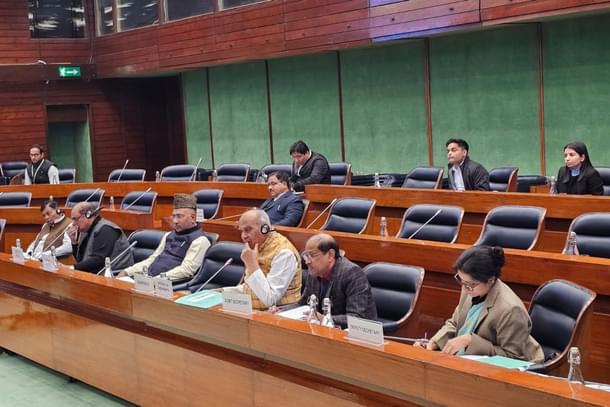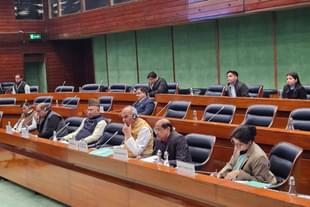News Brief
Waqf Amendment Bill: 572 Changes Proposed To Draft Law, JPC Nears Concluding Review—Here's All You Need To Know
Nishtha Anushree
Jan 27, 2025, 12:27 PM | Updated 12:27 PM IST
Save & read from anywhere!
Bookmark stories for easy access on any device or the Swarajya app.


The parliamentary committee examining the Waqf Amendment Bill has proposed 572 changes to the draft law, which is currently a point of contention between the Bharatiya Janata Party (BJP) government and the opposition.
The Joint Parliamentary Committee (JPC) on the Waqf Amendment Bill, led by BJP member of Parliament (MP) Jagdambika Pal, distributed a consolidated list of amendments late on Sunday (26 January).
The committee's review process is nearing its conclusion, The Hindu reported. The clause-by-clause amendments will be the subject of discussion at the Committee's meeting on Monday.
Amendments to the Bill have been submitted by both BJP members and opposition representatives. Notably, none of the allies of the BJP are included in the list of those who have submitted these amendments.
The JPC was presented with the Waqf (Amendment) Bill 2024, on 8 August after its initial introduction in the Lok Sabha by the Union Minority Affairs Minister Kiren Rijiju. Earlier, it was expected to be presented in the Winter Session.
However, since the JPC could not conclude its proceedings, the bill was further deferred and is now likely to be presented in the upcoming Budget Session of the Parliament.
Last week, 10 opposition MPs, including Trinamool Congress leader Kalyan Banerjee, AIMIM chief Asaduddin Owaisi, and DMK’s A Raja, were suspended for a day from the JPC for disrupting the hearings.
The Waqf Amendment Bill proposes numerous changes to the way Waqf boards are administered, including nominating non-Muslim and (at least two) women members. Additionally, the amendments prohibit the Central Waqf Council from claiming land.
The amendments also propose changes to the Central Waqf Council's composition, requiring the inclusion of a union minister, three MPs, two former judges, four individuals of national repute, and senior government officials, none of whom need be from the Islamic faith.
Other proposed changes are to limit donations from Muslims who have been practicing their faith for at least five years (a provision that triggered a row over the term 'practicing Muslim').
The proposed changes aim to empower Muslim women and children who were said to have "suffered" under the existing Waqf Act.
Nishtha Anushree is Senior Sub-editor at Swarajya. She tweets at @nishthaanushree.




